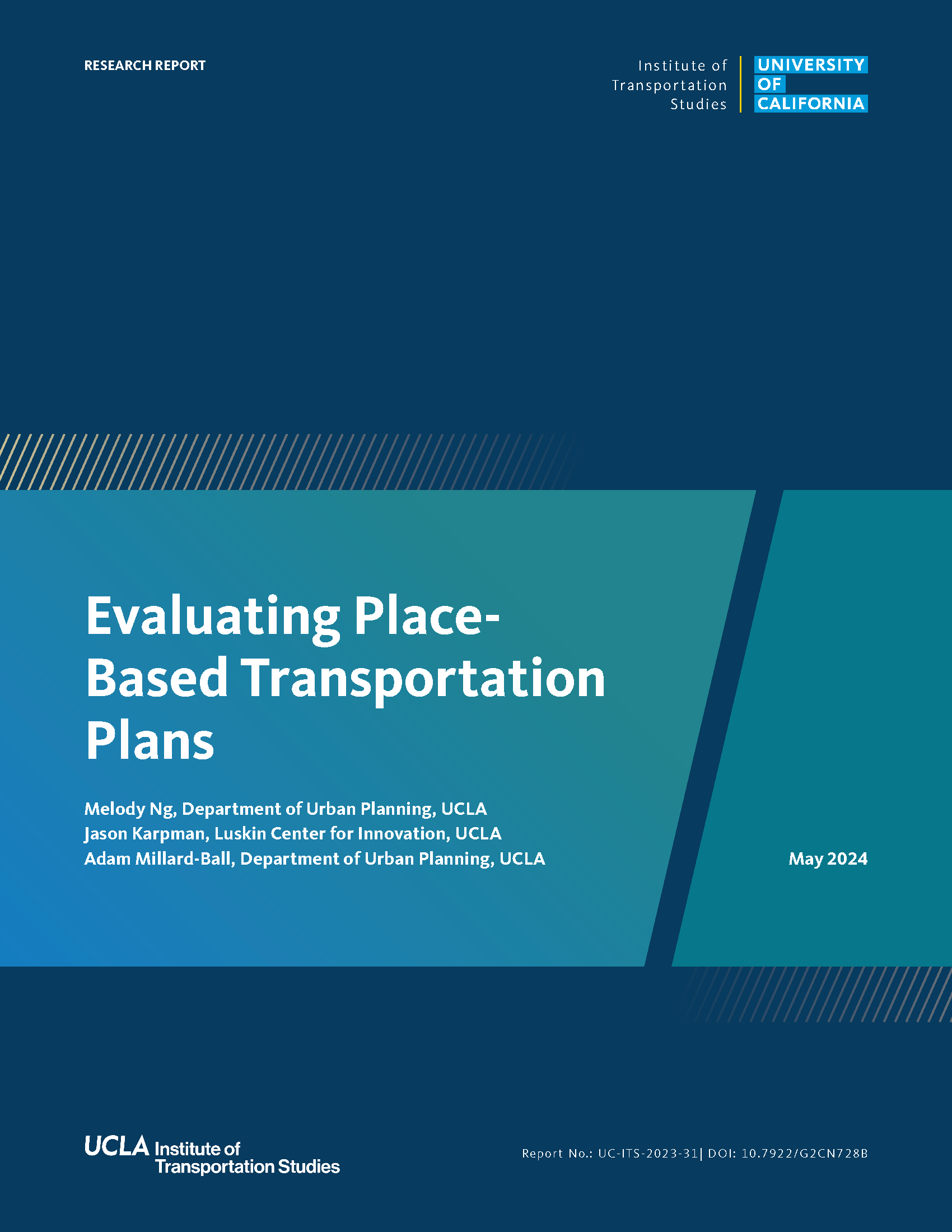Project ID:
LA2203Status:
OngoingFunding Source:
Statewide Transportation Research ProgramProject Description
California has increasingly turned to place-based, community-driven programs such as Transformative Climate Communities (TCC), the Community Air Protection Program (CAPP), and Regional Climate Collaboratives (RCC) to address the twin priorities of climate change and environmental justice. Transportation improvements are at the heart of these cross-sectoral programs because of their potential to mitigate air pollution, greenhouse gas emissions, and inequities in access to transportation.
These community-based programs sometimes include publicly funded evaluation components designed to assess impacts on both transportation access and pollution. However, as place-based efforts that incorporate a diverse set of projects on different implementation timelines in a project area with porous boundaries, programs such as TCC are inherently challenging to evaluate. Moreover, evaluators often face the challenge of isolating the effects of multiple programs acting on the same variables in the same project area (e.g., TCC and CAPP in Stockton). Carefully selected control sites can support this effort, but no two communities are exactly alike, limiting the ability of evaluators to establish a perfect counterfactual. In this synthesis, we ask how place-based climate action efforts are being evaluated, and what insights from the broader policy and plan evaluation research literature might inform evaluation design.
Publications

Adam Millard-Ball (PI)
adammb@ucla.edu
Research Team
Program Area(s):


